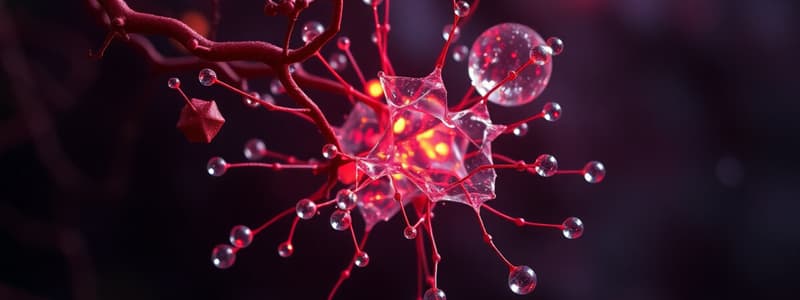Podcast
Questions and Answers
List the physical sciences.
List the physical sciences.
Physics, Geology, Astronomy, Chemistry
List the life sciences.
List the life sciences.
Biology, Zoology, Botany
Define biology.
Define biology.
The study of life
Define zoology.
Define zoology.
Define botany.
Define botany.
Define physics.
Define physics.
Define geology.
Define geology.
Define astronomy.
Define astronomy.
Define chemistry.
Define chemistry.
What is natural philosophy?
What is natural philosophy?
Physics is the most basic of all the sciences.
Physics is the most basic of all the sciences.
Who are credited as the founders of the scientific method?
Who are credited as the founders of the scientific method?
What are the steps of the scientific method?
What are the steps of the scientific method?
A scientific hypothesis is an educated guess that is fully accepted upon development.
A scientific hypothesis is an educated guess that is fully accepted upon development.
A scientific theory synthesizes well-tested and verified hypotheses about certain aspects of the natural world.
A scientific theory synthesizes well-tested and verified hypotheses about certain aspects of the natural world.
Which of the following is a scientific hypothesis?
Which of the following is a scientific hypothesis?
Define science.
Define science.
Define technology.
Define technology.
Science and technology are different.
Science and technology are different.
Flashcards are hidden until you start studying
Study Notes
Branches of Science
- Science is divided into two main branches: life sciences and physical sciences.
- Life sciences study living things.
- Physical sciences study nonliving things.
Life Sciences
- Biology: the study of life
- Zoology: the study of animals, their structures, behaviors, habitats, etc.
- Botany: the study of plants
Physical Sciences
- Physics: the study of the nature of basic things like motion, forces, energy, matter, heat, sound, etc.
- Geology: the study of Earth, its structure, substance, and history.
- Astronomy: the study of everything beyond Earth's atmosphere, including celestial objects.
- Chemistry: the study of matter and its essence and substances.
Natural Philosophy
- Natural philosophy is the study of unanswered questions about nature.
- Much of science today was once considered natural philosophy.
- Physics provides the foundation for chemistry, which in turn supports biology.
- Understanding physics enhances the understanding of other sciences.
Scientific Methods
- Scientific findings expressed mathematically are easily verifiable or disprovable through experimentation.
- Progress in science is achieved through trial and error, experimentation, and accidental discovery.
- The success of science relies on the scientific attitude of inquiry, experimentation, and humility.
- An object is in equilibrium when the sum of all forces acting on it equals zero.
- Galileo Galilei and Francis Bacon are considered founders of the scientific method.
Steps of Scientific Methods
- Recognize or identify the problem.
- Formulate an educated guess (hypothesis) about the answer.
- Predict the consequences (results) of the hypothesis.
- Perform experiments to test predictions.
- Formulate the simplest general rule encompassing the hypothesis, prediction, and experimental outcome.
Scientific Attitude
- A fact is a close agreement reached by competent observers through repeated observations of the same phenomenon.
- A scientific hypothesis is an educated guess not fully accepted until demonstrated by experiment.
- Tested and verified hypotheses become laws or principles.
- Laws describe what will happen in a given situation, often through mathematical equations.
- Principles and laws are used interchangeably in science.
- A nonscientific hypothesis cannot be proven wrong or right.
- If evidence contradicts a hypothesis, law, or principle, it needs to be changed or abandoned.
Scientific Theories
- A scientific theory is a synthesis of a large body of information encompassing well-tested and verified hypotheses about certain aspects of the natural world.
Scientific Hypotheses
- Before a hypothesis is considered scientific, it must link to a general understanding of nature and follow the testable rule.
- It’s more important to find a way to disprove a hypothesis than to prove it right.
- To determine if a hypothesis is scientific, look for a test to prove it wrong.
Science, Technology, and Society
- Science and technology are distinct concepts.
- Science focuses on answering theoretical questions.
- Technology focuses on solving practical problems.
- Science discovers facts and relationships between observable phenomena in nature, and establishes theories to organize and explain them.
- Technology deals with tools, techniques, and procedures applying scientific findings.
- Science and technology are human endeavors.
- Technologists specifically design, create, or build things for human use and enjoyment.
Studying That Suits You
Use AI to generate personalized quizzes and flashcards to suit your learning preferences.




